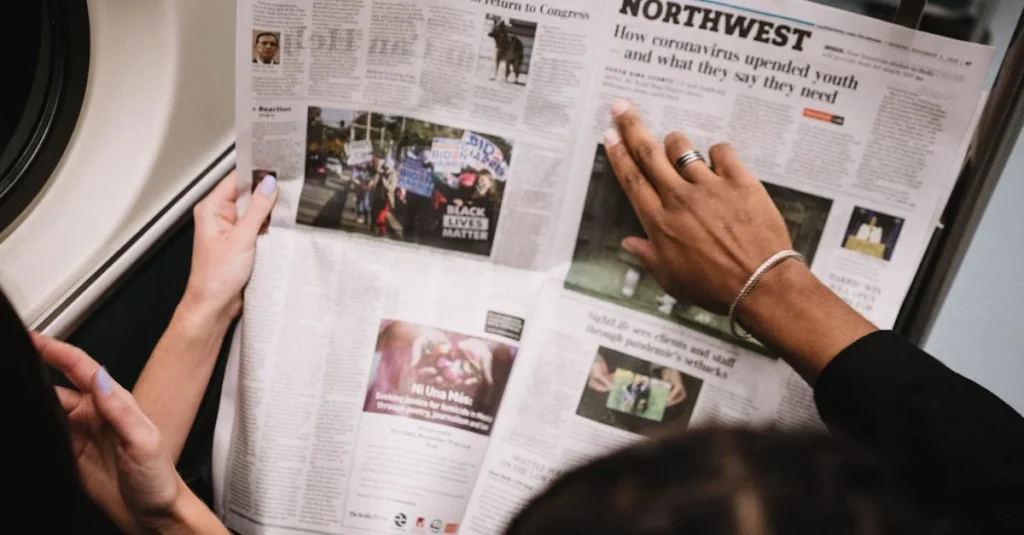In the fast-paced world of travel, staying updated on marketing trends is crucial for businesses looking to thrive. With consumer preferences shifting and technology evolving, understanding the latest developments in travel marketing can make all the difference. From innovative campaigns to emerging platforms, the landscape is constantly changing, presenting both challenges and opportunities for marketers.
As travelers become more discerning, effective marketing strategies must adapt to meet their needs. This article dives into the latest travel marketing news, spotlighting key trends and insights that can help businesses navigate this dynamic environment. Whether it’s leveraging social media influencers or embracing sustainable practices, staying informed is essential for success in the travel industry.
Travel Marketing News
Travel marketing news highlights the ongoing shifts in consumer behavior and technological advancements shaping the industry. Businesses increasingly rely on analytics to understand traveler preferences, allowing for targeted and personalized marketing efforts.
Recent reports show that over 60% of travelers use social media platforms, making influencer partnerships a vital marketing strategy. Influencers promote destinations and experiences, directly impacting brand visibility and consumer trust.
Sustainability continues to be a crucial trend, with 75% of travelers stating they’d choose eco-friendly travel options. Brands incorporating sustainable practices not only appeal to environmentally conscious consumers but also enhance their brand image.
Emerging technologies, such as artificial intelligence and virtual reality, are transforming travel marketing. AI-driven chatbots improve customer engagement, while virtual reality provides immersive experiences, allowing potential travelers to explore destinations before booking.
Data privacy remains a significant concern, with regulations like the General Data Protection Regulation (GDPR) shaping marketing strategies. Companies must ensure transparency and compliance to maintain consumer trust.
Staying informed about these trends allows businesses to adapt their marketing strategies effectively, ensuring they meet the evolving needs of today’s travelers.
Recent Trends In Travel Marketing
Travel marketing trends reflect the rapid changes in consumer behavior and technology. Businesses that embrace these trends position themselves for greater success.
Shift Towards Digital Strategies
Businesses increasingly adopt digital marketing strategies. Over 80% of travelers utilize online platforms for planning trips, prompting brands to focus on their online presence. Search engine optimization (SEO), pay-per-click advertising, and social media campaigns gain prominence, driving traffic and generating leads. Content marketing also plays a critical role, with 70% of consumers preferring informative blog posts and videos. Companies that leverage user-generated content build a sense of community and authenticity, making their digital strategies more effective.
Emphasis On Personalization
Personalization in travel marketing becomes essential as customers seek tailored experiences. Approximately 85% of travelers respond positively to personalized advertising. Through data analytics, brands can understand traveler preferences, enabling targeted marketing efforts. Customized emails, personalized itineraries, and exclusive offers enhance user experience and foster loyalty. Additionally, businesses embracing segmentation techniques access insights that inform their marketing strategies, allowing them to meet individual traveler needs effectively.
The integration of tools like a travel video maker allows brands to create captivating videos that resonate with audiences, showcasing destinations and personalized travel experiences dynamically.
Notable Campaigns In The Industry
Travel marketing campaigns showcase innovative strategies and highlight both successes and lessons learned. This section examines specific case studies and what can be gleaned from less successful efforts.
Case Study: Successful Campaigns
- Discover Puerto Rico
Discover Puerto Rico launched the “Have You Seen Puerto Rico?” campaign, effectively utilizing user-generated content across social media platforms. This approach not only increased engagement but also showcased authentic experiences, leading to a 60% increase in visitor inquiries. - Airbnb’s “Live There”
Airbnb’s “”Live There”” campaign encouraged travelers to immerse themselves in local cultures. Through targeted ads and engaging content, Airbnb increased brand awareness and generated a 40% rise in bookings in key markets. - VisitScotland’s “Scotland: The Home of Golf”
VisitScotland focused on attracting golf enthusiasts through the “”Home of Golf”” campaign. The integration of digital storytelling and influencer collaborations resulted in a significant 20% increase in golf tourism, demonstrating the power of niche marketing.
- Oman Air’s #FlyOman Campaign
Oman Air’s attempt to launch the #FlyOman campaign faced backlash due to a lack of cultural sensitivity. Negative feedback on social media highlighted the importance of understanding target demographics and cultural nuances in global marketing. - United Airlines’ Customer Service Incident
United Airlines experienced a major public relations failure during a viral incident involving a passenger removal. The aftermath showed that transparent communication and rapid response are crucial for maintaining customer trust and reputation. - Travelocity’s Missed Target Audience
Travelocity’s advertising campaign aimed at young travelers but failed to resonate with the intended demographic. Data indicated a disconnect between the message and audience values, underscoring the significance of aligning marketing strategies with audience preferences.
Examining these notable campaigns illuminates effective strategies as well as pitfalls to avoid in travel marketing. Businesses can leverage these insights to refine their marketing approaches and enhance overall success.
Impact Of Social Media On Travel Marketing
Social media significantly influences travel marketing strategies, shaping consumer perceptions and driving engagement. The integration of platforms like Instagram, Facebook, and TikTok revolutionizes how brands connect with travelers.
Role Of Influencers
Influencers play a crucial role in travel marketing by bridging the gap between brands and consumers. Over 60% of travelers trust social media influencers more than traditional advertisements, enhancing brand credibility. Partnerships with influencers can yield significant results, as seen in campaigns that increase engagement rates and encourage user action. For instance, influencer-generated content can increase conversion rates by approximately 10%, showcasing the effectiveness of leveraging social proof. Brands can target specific demographics through influencer collaborations, aligning with their audience’s interests and motivations.
User-Generated Content
User-generated content (UGC) acts as a powerful marketing tool in the travel industry. Approximately 79% of travelers consider UGC when making travel decisions. Sharing authentic experiences from real customers fosters trust and relatability, driving potential travelers to take action. Platforms like Instagram and Facebook serve as reservoirs for UGC, allowing brands to feature reviews, photos, and videos from satisfied customers. Engaging with UGC not only enhances brand visibility but also cultivates a sense of community among travelers. Brands that encourage and showcase UGC can see up to a 45% increase in engagement on social media channels, demonstrating the impact of authentic, relatable content on consumer behavior.
Business in Travel
Staying ahead in travel marketing news requires a keen understanding of evolving trends and consumer behaviors. As businesses adapt to the increasing importance of social media and sustainability, they must also embrace innovative technologies that enhance customer engagement.
The ability to personalize marketing efforts and leverage user-generated content can significantly impact brand loyalty and conversion rates. By learning from both successful and unsuccessful campaigns, companies can refine their strategies to resonate with today’s discerning travelers.
Ultimately, a proactive approach to these dynamic shifts will empower brands to thrive in the competitive travel landscape.



